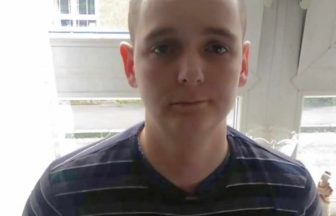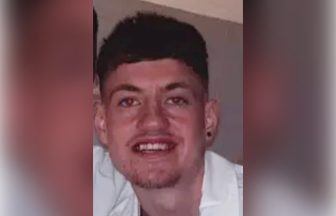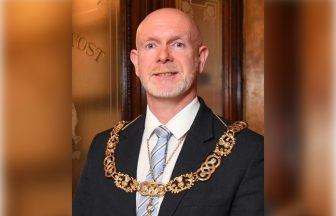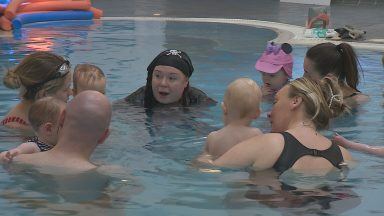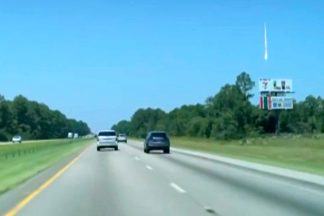With the introduction of Scotland’s new Hate Crime Act on April 1 concerns have been raised about what police do when they decide no crime has been committed.
The controversy around the legislation has brought with it a debate around “non-crime hate incidents” (NCHI).
While opponents of NCHI’s have labelled them an attack on free speech, supporters – including the First Minister – say they help police gather data about spikes in hatred across the country.
What are non-crime hate incidents?
Hate incidents are recorded by police when a hate crime allegation does not reach the threshold for criminality.
According to the Police Scotland’s hate crime national guidance (HCNG), a hate incident is “any incident which is perceived by the victim or any other person, to be motivated (wholly or partly) by malice and ill-will towards a social group but which does not constitute a criminal offence (non-crime incident)”.
Critics take issue with the policy revolving around a complainer’s perception of hate, rather than whether a law has been broken.
NHCIs are not a part of the Hate Crime and Public Order Act that came into force on Monday and have been around for years.
But the legislation has brought with it warnings from critics who say that it could lead to an increase in hate incidents being logged against innocent people by police.
STV News understands that 3,800 alleged hate crimes have already been reported to police since Monday.
It’s not clear how many of these will be logged as NCHIs.
Police Scotland has been asked to clarify whether hate crime allegations submitted against First Minister Humza Yousaf and JK Rowling – which were both dismissed – will be recorded as hate incidents.
The force has not yet responded to STV News.
‘Police Scotland is behaving outrageously and unlawfully’
The issue was brought to national prominence last week when Conservative MSP Murdo Fraser revealed he had a hate incident lodged against him after he compared identifying as non-binary to identifying “as a cat” in response to a government plan on equality.
He claims that Police Scotland’s policy is illegal and has threatened to take the force to court if it does not delete the NCHI log.
Fraser said NCHIs breach the Human Rights Act of 1998 which protects privacy and free speech, the Data Protection Act of 2018 and the Equality Act of 2010, which deems “philosophical belief” as a protected characteristic.
Although this happened under Scotland’s previous laws, critics of the Hate Crime Act say even more “hate incidents” will be logged as people feel empowered to report hate crimes against more groups.
Fraser said: “Police Scotland has behaved not just outrageously but unlawfully according to the legal advice obtained by the Free Speech Union.
“This is Police Scotland attacking free speech – but it is more sinister than that.
“My tweet wasn’t pointing a finger at an individual – it was critical of a Scottish Government policy.”
He also called for Police Scotland to log an NHCI against Yousaf after police dismissed hate crime allegations against the FM.
A spokesperson for Police Scotland said victim recording was important to “monitor tensions within communities” and that hate incidents were not logged against perpetrators.
The First Minister told STV News he supported police recording non-crime hate incidents.
“It’s important that they are recorded because what it does is it gives police an idea of where there might be spikes in hatred,” he said.
Media reports suggested Police Scotland had issued a review of the policy but the force has disputed this.

The system of reporting hate incidents in England and Wales was overhauled last year following similar concerns.
New guidance says that an incident should only be recorded once it meets the threshold of posing “significant harm to individuals or groups with a particular characteristic or characteristics” or that “future criminal offence may be committed against individuals or groups with a particular characteristic or characteristics”.
Could your employer find out if a ‘non-crime hate incident’ is recorded against you?
STV News understands that under Police Scotland’s enhanced disclosure scheme it is possible, but considered unlikely, for these hate incidents to be disclosed to employers.
According to the force, an enhanced type of disclosure will show an applicant’s spent and unspent convictions “subject to any filtering” and may also contain “other conviction and non-conviction information held by the police”.
Unspent cautions, inclusion on children’s or adults’ lists, information from the Sex Offenders Register or “other relevant information held by police” could be issued to employers.
Police Scotland said that such a disclosure may be needed for people applying to adopt a child, a gaming or lottery licence for a business or those seeking “judicial appointment”.
Scottish Tory MSP Murdo Fraser said: “It is deeply concerning that those who have not committed a hate crime could still have an ‘incident’ recorded against them by the police which can be easily identified by an enhanced disclosure check.
“Those who find themselves in that position face the possibility of losing out on a new job despite having committed no crime.
“If their experience is anything like mine, they may have no knowledge of the police ‘incident’ showing up against their name.
“This is only going to get worse now the dangerous Hate Crime Act is in force. It is an attack on free speech and should be scrapped immediately.”
Follow STV News on WhatsApp
Scan the QR code on your mobile device for all the latest news from around the country


 STV News
STV News
